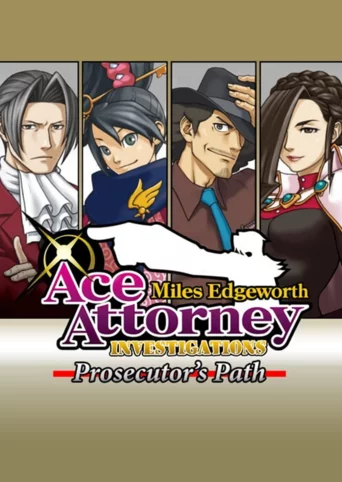
Ace Attorney Investigations: Miles Edgeworth - Prosecutor's Path (2015)
Genres:Adventure, Point-and-click, Visual Novel
Themes:Comedy
Game modes:Single player
Story:Gyakuten Kenji 2, unofficially known as Ace Attorney Investigations 2, is an adventure video game developed by Capcom. It was released in Japan for the Nintendo DS in 2011 and for Android and iOS in 2017; Capcom does not plan to release the game outside Japan, but a full English fan translation, known as Prosecutor's Path, was released in 2014, complete with localizations of character names in line with the official localizations of the rest of the series.Show more
Vote to bring this game to GOG and help preserve it.109
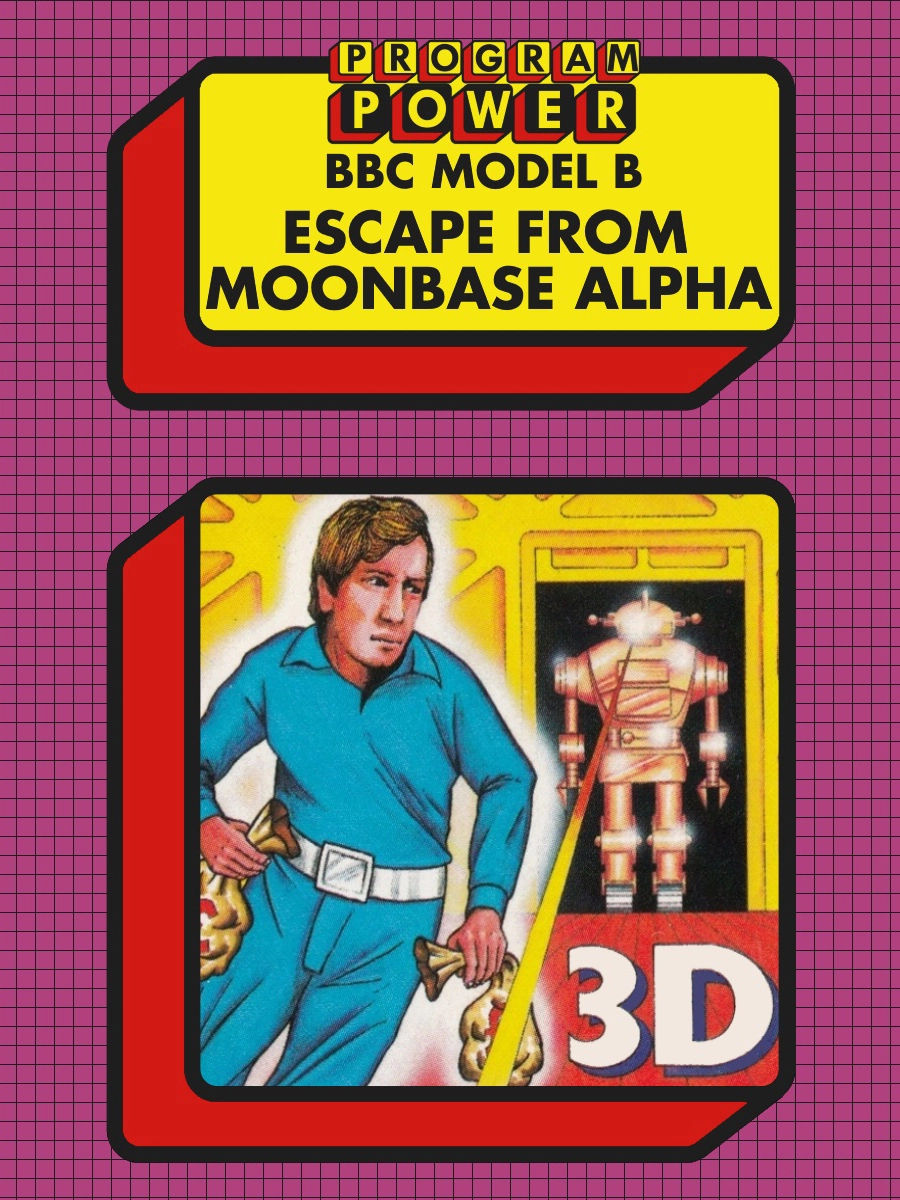
Escape from Moonbase AlphaA 3D graphical adventure in which you must find the Doctor and give him ten bags of gold to pay for your transport off of the moonbase. You will not be able to pick up the bags of gold if there is a monster in the room with you. In an emergency, you can take a Hulk pill which doubles your strength for five seconds and allows you to walk through the walls (at a cost of 100 strength units). There are many friendly and unfriendly monsters in the adventure and you will soon learn which ones to fight and which ones to avoid.Science fiction

Death GateDeath Gate is a classic adventure game from the much revered Legend Entertainment. The studio is known for developing games that include exceptionally well crafted puzzles and a wacky sense of humor which frequently breaks the fourth wall and plays to a wide assortment of offbeat puns. Moreover, the company has emerged with a winning streak of fantasy and sci-fi games based on popular literature adaptations. The most famous of these are Frederick Pohl's Gateway and Terry Brooks' Shannara.
In 1994, Legend Entertainment has chosen to adapt not 1 book but the whole series of 7 books by Margaret Weis and Tracy Hickman known as The Death Gate Cycle. The original release of the game even includes a special gift for fans of the book series, namely an exclusive short story written by the same authors that tells some of the history of the mysterious Assassin's Guild from the series.
In Death Gate, the player is cast in the role of a freshly freed Patryn—a young, brave wizard named Haplo. By his deeds in the Labyrinth, he has gained Xar's trust to be sent as a scout to the other 4 realms. The way between them leads through a mystical portal known as the Death Gate. For his journey, Haplo is handed not a single but several quests to complete. He must first explore the realms, learn about the new lands, and find the pieces of the World Seal that will allow the reformation of the world to its original whole. He must also retrieve as much of forgotten magical lore as he can, and find runes that will allow him to enter all the other realms. Finally, and most importantly, he must find out what has happened to the Sartan who seem to have vanished somewhere long ago, so that Xar will be able to bring them to the proper Patryn justice.
The game, by taking inspiration from the first 4 books, creates a certain unique experience for the player that stands out among other fantasy adventures. There is an unusually layered structure based on the initial premise of the 5 separate realms, since the consequences of the sundering run much deeper than mere differences in landscapes. From realm to realm life conditions vary enormously, including geography, history, fauna, flora and astronomical bodies. For each realm, the population is divided into very specific societies, although many attributes of each race remain common. Several royal families, powerful guilds, and wealthy, independent merchants all have their own specific goals and ambitions that are not at all connected to the grand schemes of the Patryn and the Sartan, which they mostly are unaware of at this time after centuries of their absence. The distinctiveness of each culture's circumstances and the individual diversity of the larger and smaller schemers within the cast of characters give a special magic and wonder to the proceedings in the game, especially when the player visits a new realm for the first time and starts exploring it. The worlds possess a mysterious, intriguing flavor, but with a touch of whimsical surprises from nearly everywhere. Each encounter with Xar between travels reveals more information concerning the whole mechanics that connect these realms.
Death Gate contains some exceptionally good voice acting. This is especially true for Henry Strozier who plays the role of Xar. He carries a low, charismatic, and authoritative voice that perfectly befits a character with a brave heart, long experience, deep wisdom, but a good share of arrogance. He shines for good measure too, since the player will spend more time conversing with his character than any other in the game. Haplo, who is only heard in conversations, voiced by David DeBoy, does not have a plain, uninteresting voice either. He sounds slightly arrogant and lordly like his master, but also rather youthful, yet manly enough to give an air of independency.
The MIDI music in Death Gate is very well done. The compositions are perfect for an epic fantasy setting. The tunes are often light and comforting, but they can change dramatically to a more majestic tone when visiting the king's palace and to a darker motif when exploring the undergrounds of Abarrach, the vicious Labyrinth, or the deadly Assassin's Guild.
Aside from Haplo and Xar, several other characters from the books also make an appearance in the game. Many of them, however, have been greatly simplified and reduced to only episodic roles with little development. Many major characters from the books are missing altogether, most notably Alfred, whose role is crucial in bringing out Haplo's characterization in the literary originals. On the other hand, some of the memorable archetypes from the books are used in new, interesting ways. For example, a boy named Bane has been recast into a different child with a different life and social standing, though both share a very similar personality. The character that stays most true to the canon is the whimsical, crazy wizard Zifnab, who appears in all his pun infested glory. In general, the plotlines are less violent and happier than those in the books, and the characters show less moral ambiguity.
Death Gate plays like a traditional point-and-click adventure game, but like a role-playing game it is as much about being free to explore the fictional world as about following a foreordained storyline thread. There is quite a bit of narrative text, diaries, historical documents, and dialogs to sieve through. They are all well written and are rather fascinating, since everything is directly connected to the quests the player needs to complete or the puzzles the player needs to solve. There is a fine dose of humor in the game too, but nothing so unsubtle that may distract from taking the main conflicts of the story seriously. From this stance, Death Gate is actually quite a departure from the largely comical gallery of previous game titles from Legend Entertainment.
The puzzles in Death Gate are a bit on the easy side, but the enjoyment they give is very well balanced by their ingenuity. The wealth of subplots, quests, plot twists, and deceptions add a lot of tension to the player's own proceedings. There is a certain logic and buttons based puzzle that is rather hard to beat. However, the player can ask for help from the game to solve it (or even skip over it). In general, the difficulty level of the game lies somewhere between easy and medium. The player can die in the game, but there is an option available to undo the player's last fatal action.
Comparison with the books quickly reveals some of the obvious budgetary or time constraints the developer must have faced during Death Gate's development. Pryan, the realm of fire, is build of elements taken not only of this realm in its original form but also of Chelestra, the realm of water. Consequently, the latter realm has shrunken to a very limited scope in the game. The smallness of Chelestra comes in the game as a particular disappointing revelation, since it is the last of the elemental realms that the player visits.
The interface used in Death Gate has evolved from the original Legend Entertainment's interactive fiction interface. There is an always available standard list of commands (such as Take, Look at, or Use) for the player to choose from, reminiscent of Lucasarts' SCUMM interface. In addition, extra action commands specific to an object appear when it is clicked. For example, when clicking on a door, apart from the standard list of verbs, there are added options to unlock, knock, or eavesdrop on the door. There are many actions which are not necessary to complete the game but which trigger funny responses specific to the situation. Altogether, the interface is a clever compromise between the sense of freedom achieved through a text parser and the simplicity of contemporary point-and-click style.
Gameplay in Death Gate draws on a few gimmicks that are typical of role-playing games. For some parts of the game, the player is able to have a party of several characters. There is also a process of collecting magical spells, even though they have been tweaked for solving puzzles instead of combat. A spell is constructed by connecting runes in a combination. After that, it is traced in the air by Haplo with his hands to bring the spell into motion. The player will be able to learn many spells in the game, mostly from the mensch. This is an important diversion from the canon, as the mensch from the books possess a different kind of magic altogether.
The high resolution graphics of the game will remind fans strongly of fantasy literature illustrated covers. The characters are beautifully detailed in high resolution, but rarely fully animated. However, their faces are always incredibly alive, especially in conversational close-ups. When exploring the game world, the player will notice many intricate but small animations in otherwise generally static sceneries. Major events occurring in the game are partially described in narrative text and partially presented as cut scenes. Sadly, the number of background illustrations in the game is a bit limited. All locations are shown from only a single point of view. Sometimes, the player is drawn to something interesting drawn at the edge of an illustration but is unable to look closely to find out more about it.Fantasy
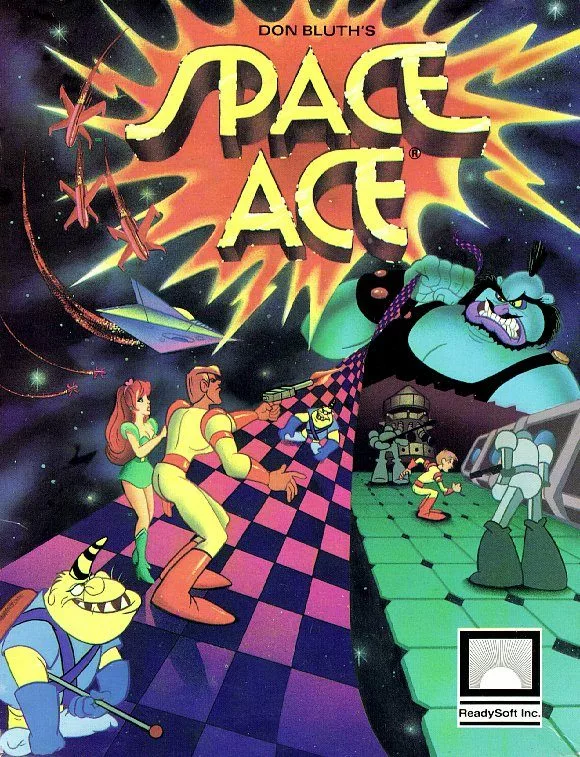
Space AceIn Space Ace you play the heroic Ace who must stop the evil Commander Borf from taking over the Earth! Borf plans to reduce all of humankind to infants and take over the planet.Action Science fiction
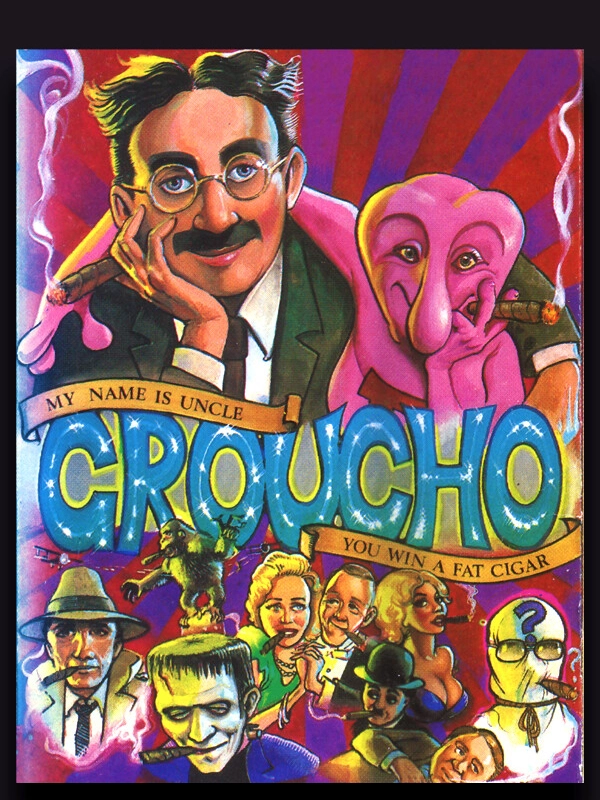
My Name is Uncle Groucho You Win a Fat CigarIn this bizarre graphically-augmented text-adventure originally released in 1983 from the mind of Mel Croucher, Uncle Groucho is your guide in a wacky alternative Hollywood where cigars are currency and you are as likely to travel in a space shuttle as in a covered wagon.Comedy
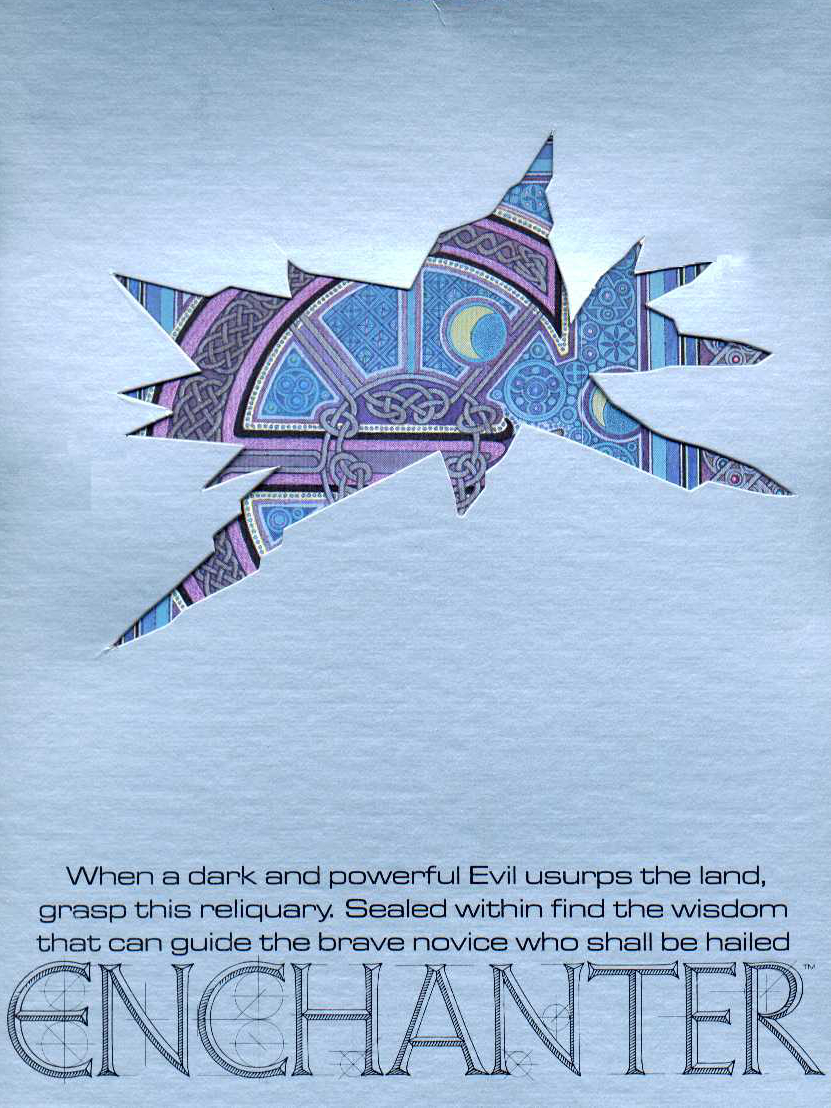
EnchanterEnchanter is a 1983 interactive fiction computer game written by Marc Blank and Dave Lebling and published by Infocom. It belongs to the fantasy genre and was the first fantasy game published by Infocom after the Zork trilogy (it was originally intended to be Zork IV). The game had a parser that understood over 700 words, making it the most advanced interactive fiction game of its time. It was Infocom's ninth game.
Krill, an incredibly powerful evil warlock, is spreading chaos and destruction. None of the more experienced members of the Circle of Enchanters dare to attempt to stop him. In desperation, the player, a novice Enchanter with only a few weak spells in his spell book, is sent in hopes that Krill will either fail to detect him or dismiss him as harmless. More powerful spells can be found on scrolls hidden in various locations, but as the player becomes more of a threat, Krill will respond accordingly.
This game features an innovative new spell system based partially on Ursula K. Le Guin's Earthsea series and partially Dungeons and Dragons' Vancian spell system, where spells must be prepared through "memorization" before being cast. As in the Earthsea series, each spell is represented by some nonsense "magic word" which is treated as a verb by the game's text parser, so that one can use the FROTZ spell (which causes objects to glow and give off light) by typing >FROTZ BOOK, in exactly the same way as one might type >PICK UP BOOK or >READ BOOK.Fantasy

Danchi-zuma no YuuwakuKoei’s erotic RPG about a condom salesman visiting an apartment block, where he must knock on doors trying to “sell his products”, while battling Yakuza and ghosts who roam the halls.Erotic
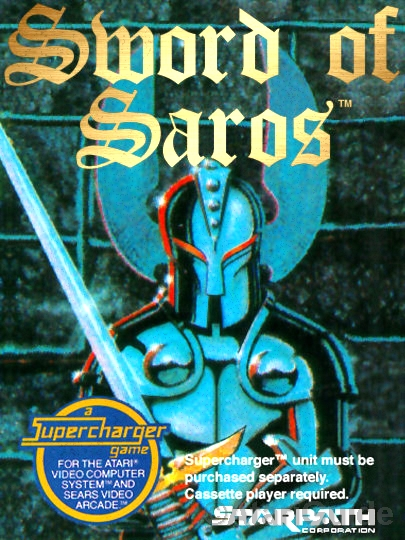
Sword of SarosWork your way through the evil wizard's maze-like dungeon to find the pieces of the Sword of Saros. When you've found all of the pieces, you can exit the dungeon, ending the game. However, the wizard has sent a bat to hunt you down. When the bat finds you, the wizard will teleport to your spot and send waves of skeletons after you. You must avoid the skeletons to reach the wizard and send him off looking for you again. Magical items you find along the way will help you in your quest.
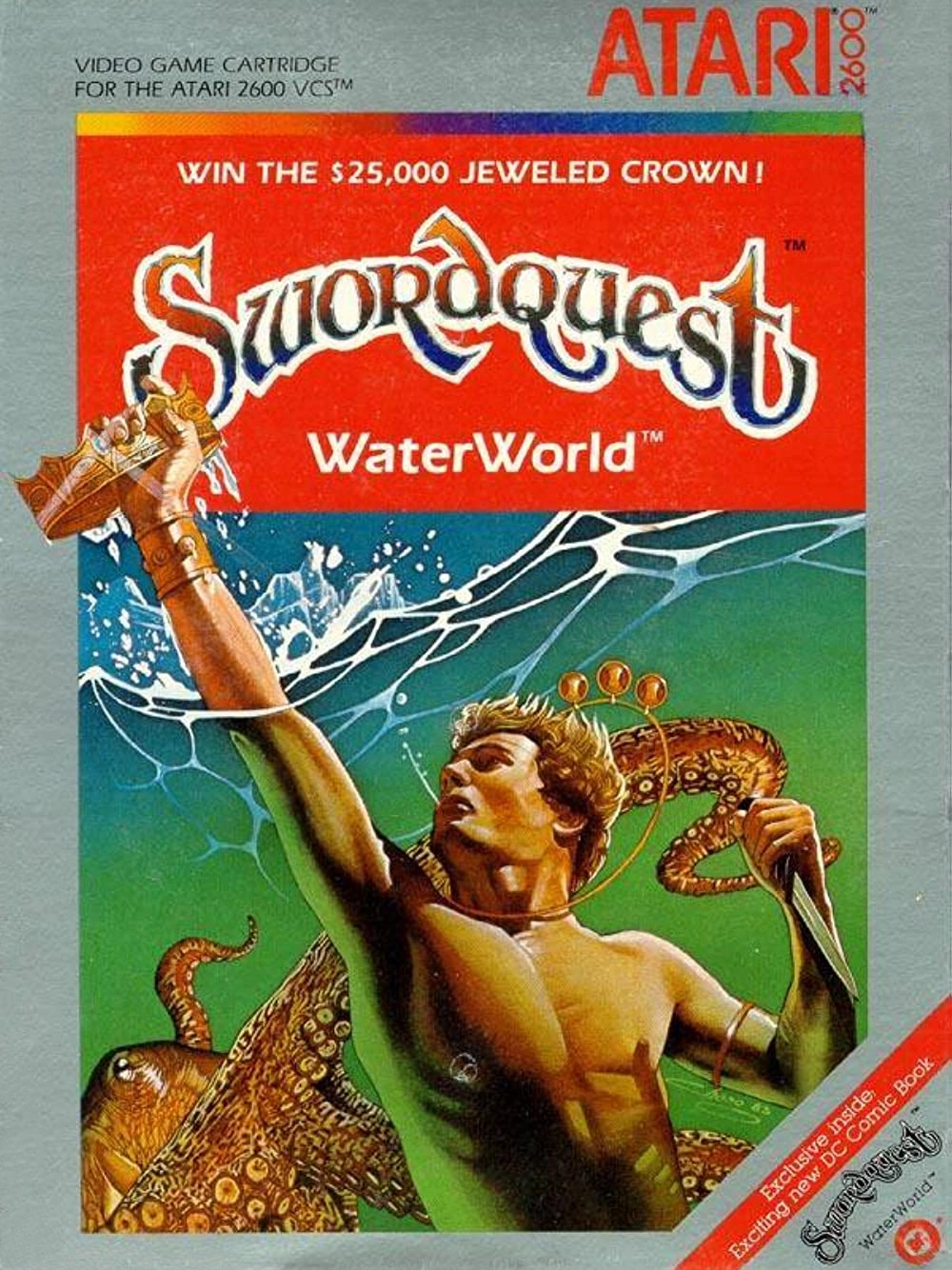
Swordquest: WaterworldSwordquest is an unfinished series of video games produced by Atari, Inc. in the 1980s as part of a contest, consisting of three finished games and a planned but never released fourth game. All of the games came with a comic book that explained the plot, as well as containing part of the solution to a major puzzle that had to be solved to win the contest. Waterworld was the third of the four games. its was based on the seven centers of chakra. It was originally released only through the Atari Club.New Action
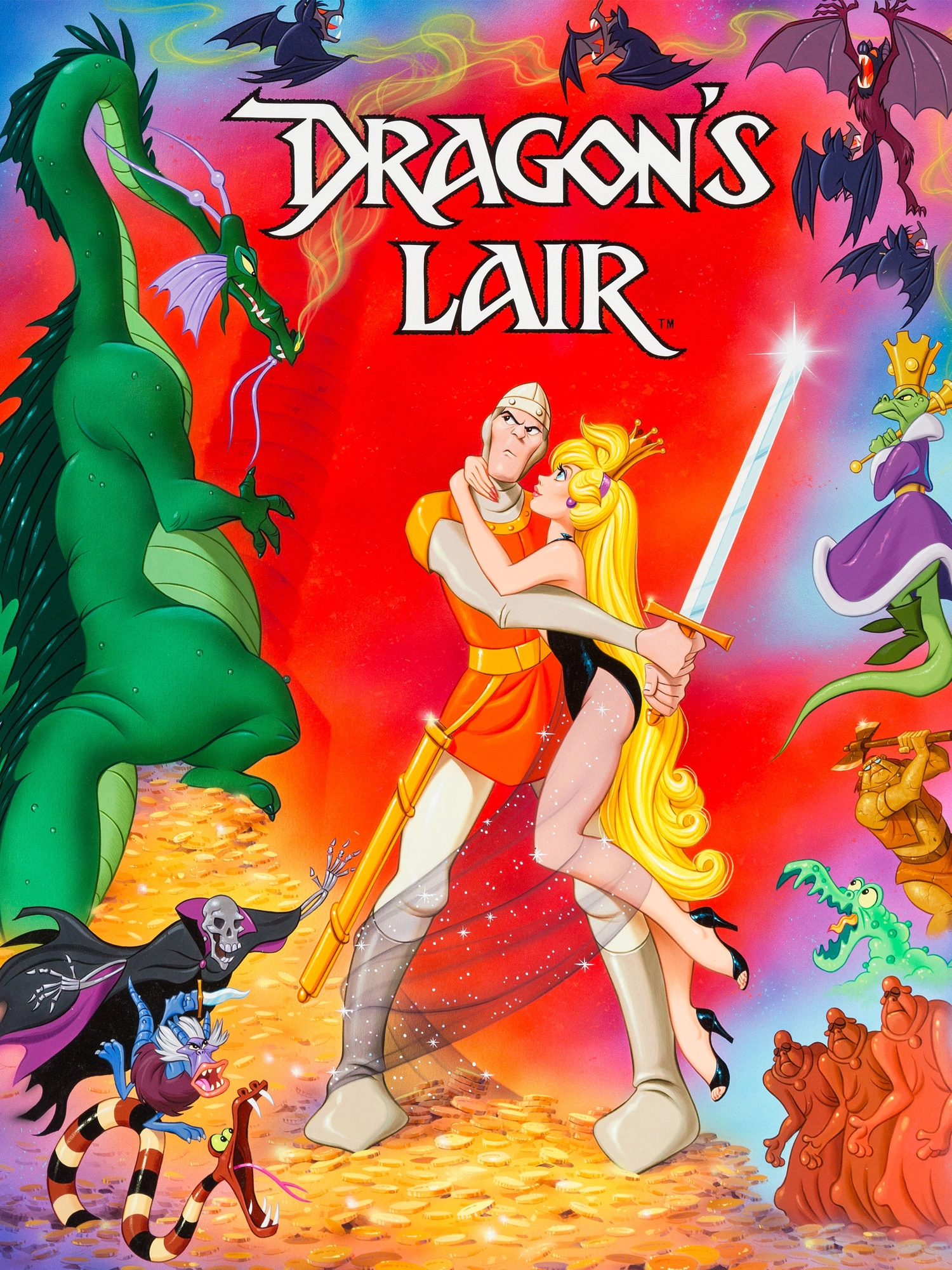
Dragon's LairHaven't heard of Dragon's Lair?! Well, you play the heroic Dirk the Daring, a valiant knight on a quest to rescue the fair princess from the clutches of an evil dragon! Originally released in the summer of 1983, Dragon's Lair has solidified itself as a cultural icon in gaming.Action Fantasy

Bugs BunnyThe object of the game is to pick carrots while avoiding the shotgun blast from one Mr. Elmer Fudd. Elmer may not be the shrewdest hunter but he is certainly persistent. Three shots from Elmer’s gun and That’s All Folks!Action